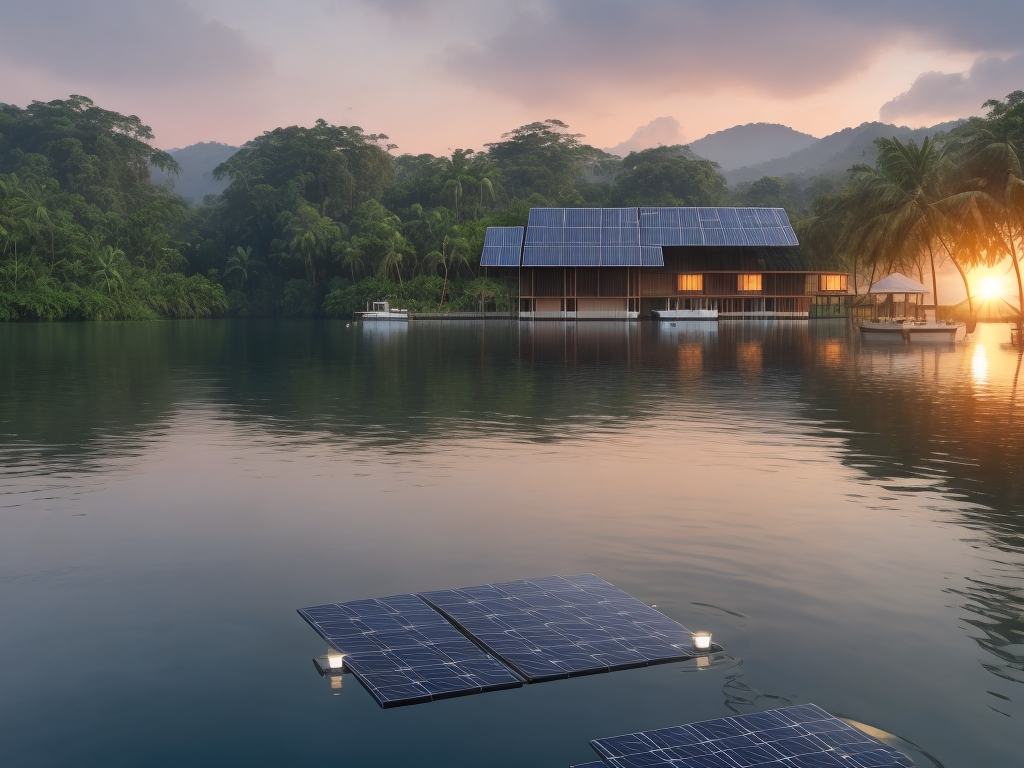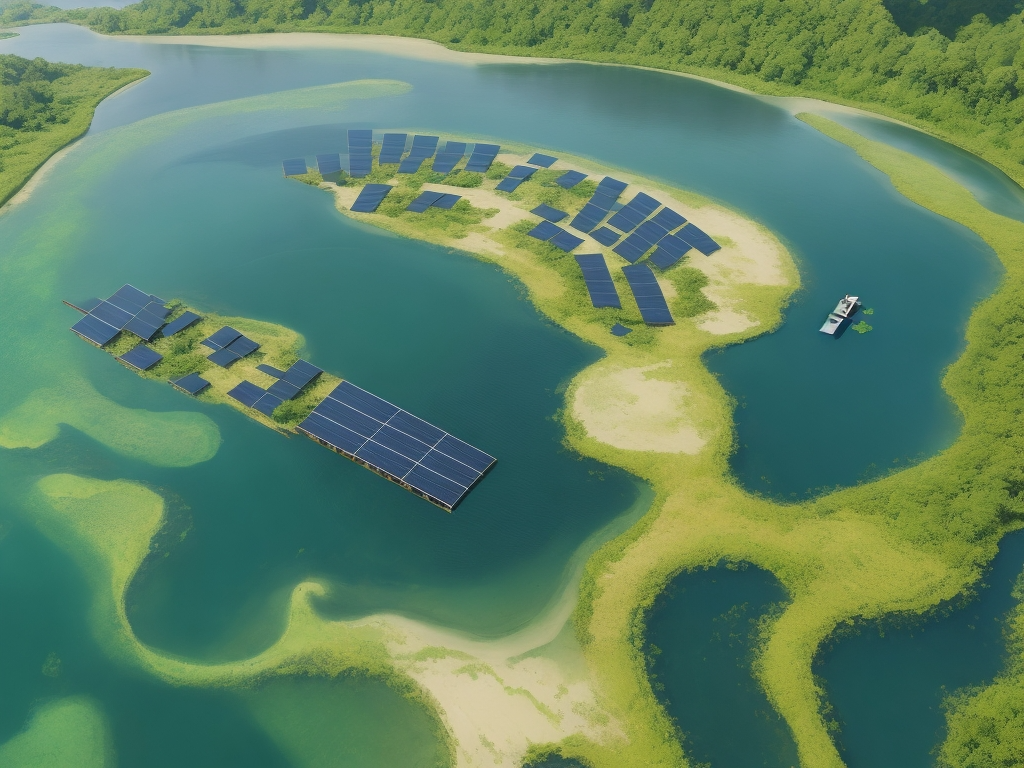
- Floating solar panels install on the calm seas of Indonesia to help in the energy generation.
- ndonesia has vast floatng solar panels energy potential and vast pumped hydro energy storage to store solar energy.
Floating solar panels could power the densely populated countries in Southeast Asia. The vast rays at the equator near Indonesia could help generate unlimited solar energy. Indonesia could generate about 35,000 TWh of solar energy a year which is equivalent to the global solar energy production. Developing floating solar panels in Indonesia could power population hotspots. The solar panels can set on rooftops, in arid areas, in agriculture or floated on water bodies. Indonesia has vast solar energy potential and pumped hydro energy storage potential to store the energy. Floating solar panels could help the country to meet the decarbonization goals set.
Power line hardware include devices that assure the free passage of electricity and signal. They facilitate the maintenance activities in harsh environment to improve efficiency and safety. Power line hardware is from materials that ensure quality and usability in various regions. They include surge arrestors, overhead line connector, insulators and utility fasteners. They work in applications such as telecommunications, aerospace, fabrication, miming and medical.
Benefits of solar infrastructure in Indonesia
Floating solar panels at the equator in Indonesia have the potential to provide a number of benefits. These benefits could impact energy generation, economic growth, environmental sustainability and community development. Power line hardware are from materials that resist rust and corrosion for durability. Floating solar panels could also help Indonesia transition towards a cleaner and more resilient energy future. The following are the common benefits of developing floating solar panels in Indonesia.
- Sustainable energy – solar panels can help to reduce reliance on fossil fuels. They could also help the country reach net-zero emissions according to their targets.
- Land conservation – the solar panels can install on water bodies such as lakes and reservoirs. This helps to conserve the land for uses such as agriculture and other developments.
- Water conservation – solar panels help to conserve water by shading water bodies to reduce evaporation. This is beneficial to Indonesia which has water stresses. Power line hardware has good electrical capabilities that helps them overcome a current.
- Reduced energy costs – solar panels harness sunlight for electricity generation. It also helps to reduce the reliance on traditional fossil fuels. This could help lower energy costs and provide significant savings.
- Job creation – the development of the solar panels in Indonesia can create new job opportunities. These are in installation, maintenance, manufacturing and related sectors.
- Grid stability – distributed solar panels help stabilize the electricity grid. This is by reducing peak demand and providing power during periods of high demand. Power line hardware mechanical strength that helps them distribute the overload.
- Reduced air pollution – solar energy reduces the need for burning fossil fuels. This leads to cleaner air and improved air quality.

Challenges facing the development of solar panels in Indonesia
Floating solar panels have the potential to offer significant benefits in terms of energy generation and sustainability in Indonesia. The development has several challenges to address to ensure their successful implementation. These challenges resolve through careful planning, technology development, stakeholder engagement and regulatory support. Power line hardware work with several fittings that help secure the connections. These challenges are as discussed below.
- Land competition – Indonesia is a densely populated country which might lead to land competition for agriculture, urban development and other purposes. These factors can limit the space available for floating solar installations.
- Wave and wind effects – water bodies in Indonesia experiences waves, wind and varying water levels. This may affect the stability of floating solar panels.
- Maintenance and access – floating solar panels are hard to access and maintain than land-based systems. Regular inspections, cleaning and repairs require specialized equipment and expertise. Power line hardware has smooth surface, accurate shapes and sizes and high breaking load capacity. These help them to provide a smooth flow of electricity.
- Technical challenges – solar panels require specialized designs to handle buoyancy, stability and corrosion resistance.
- Grid integration – ensuring seamless integration of floating solar energy into the existing grid requires careful planning and coordination with utility companies.
- Lack of expertise – the specialized floating solar panels might lead to lack of local expertise. They might require the involvement of international partners or training programs.